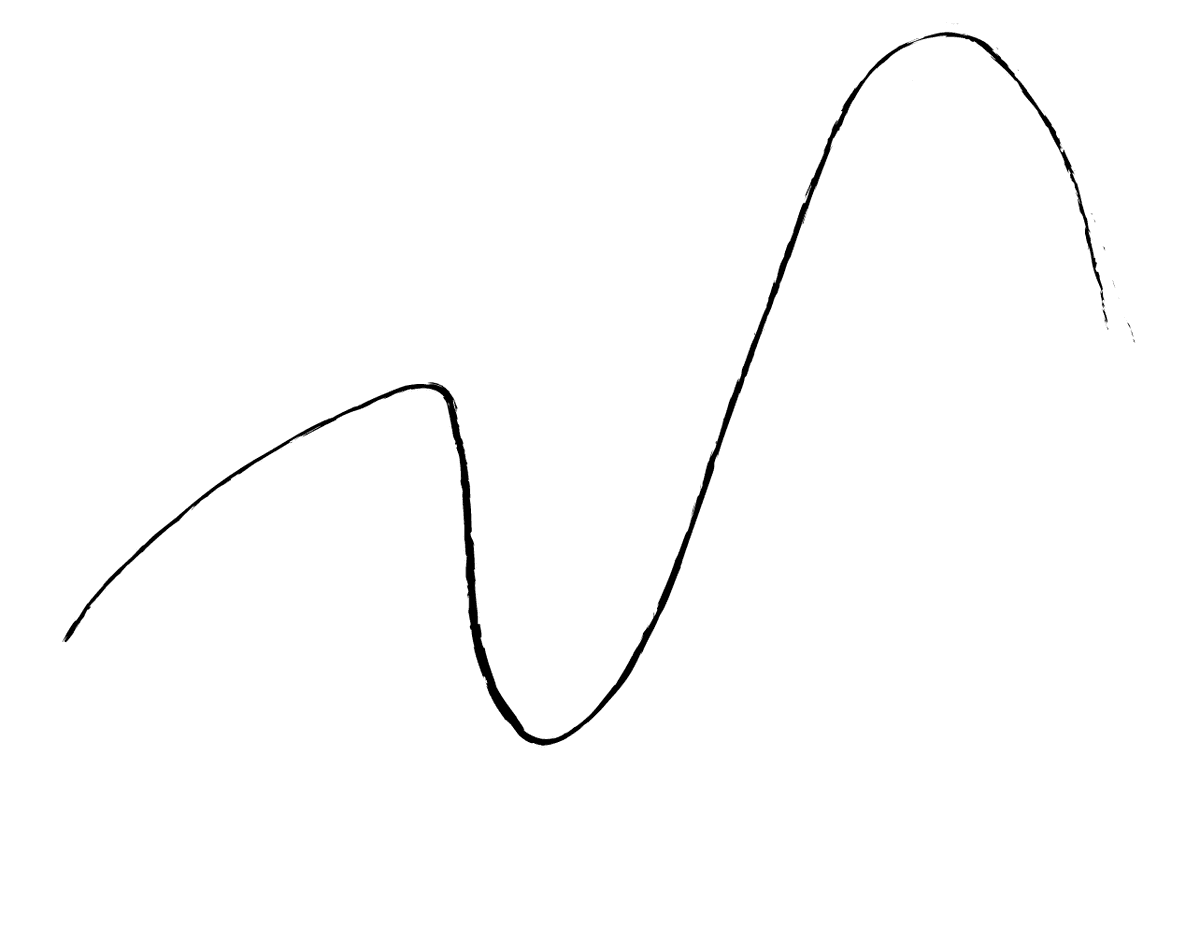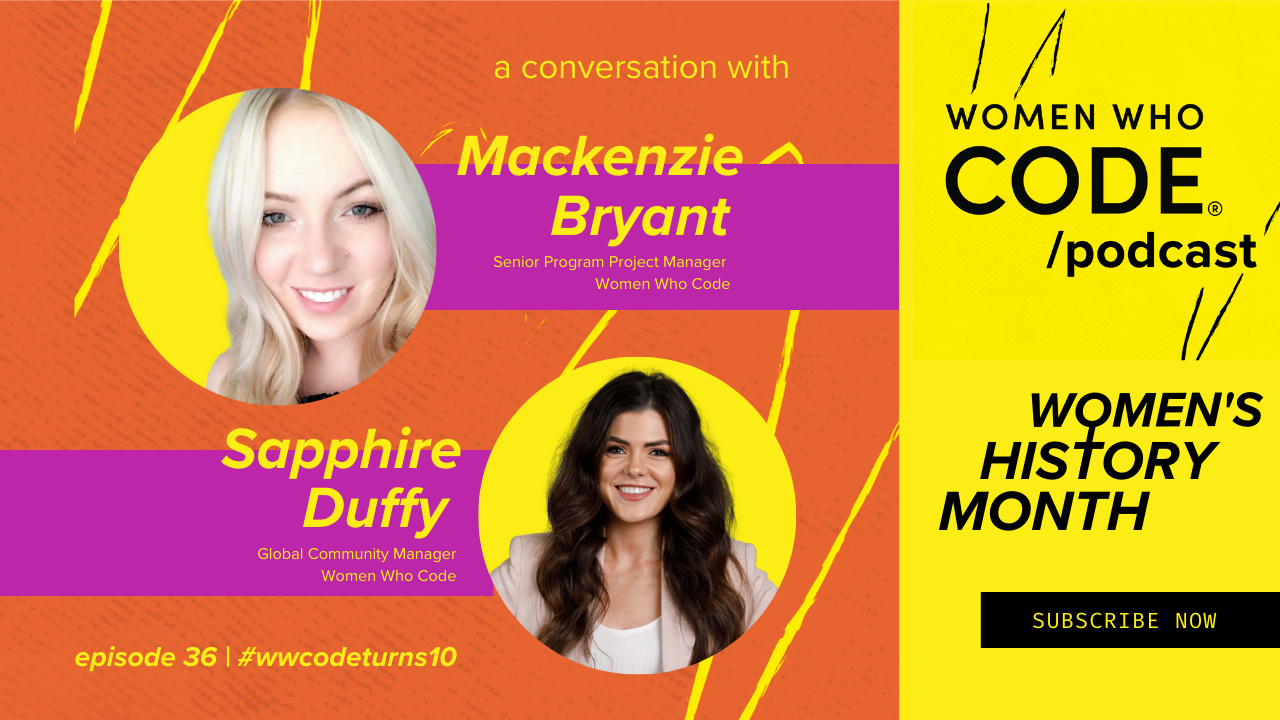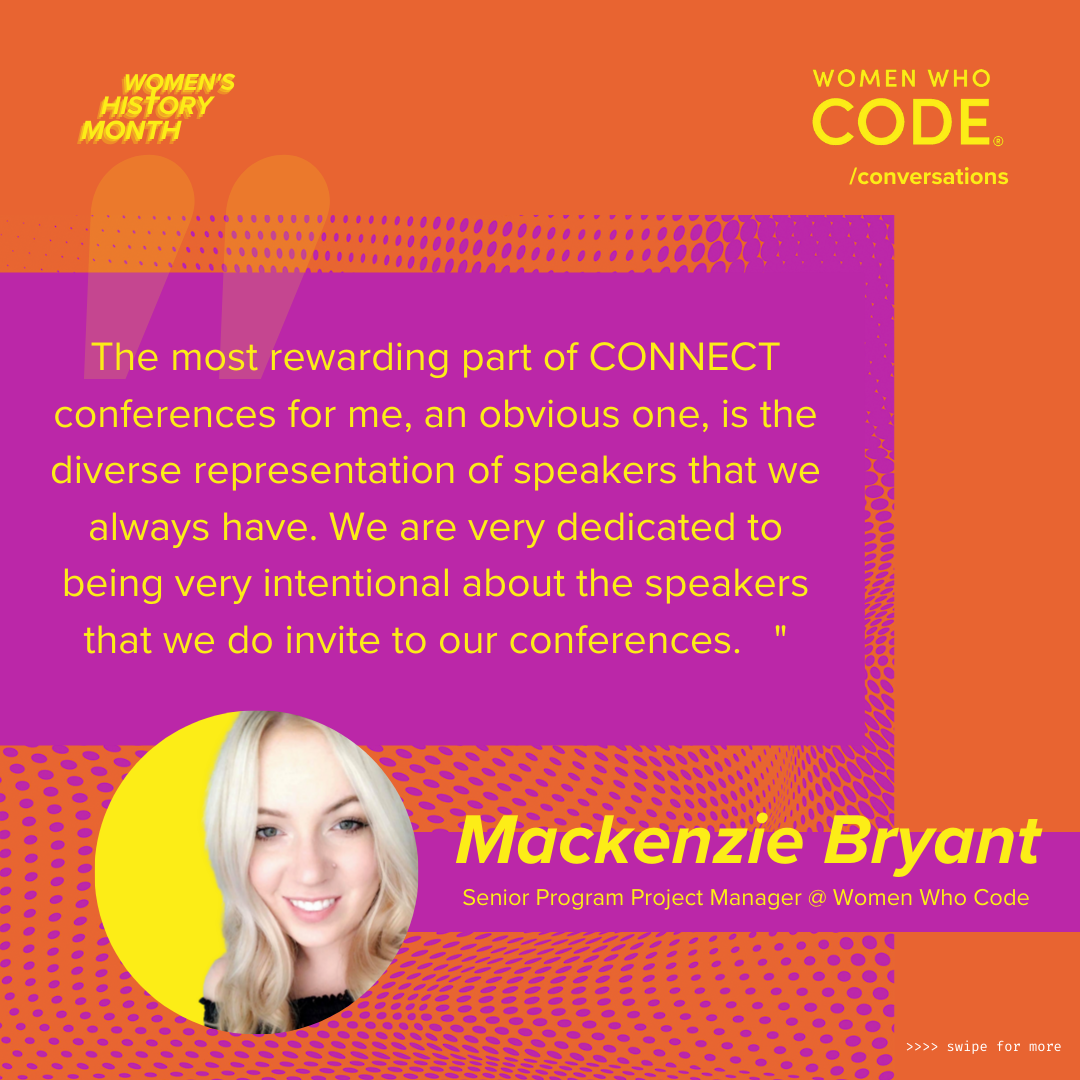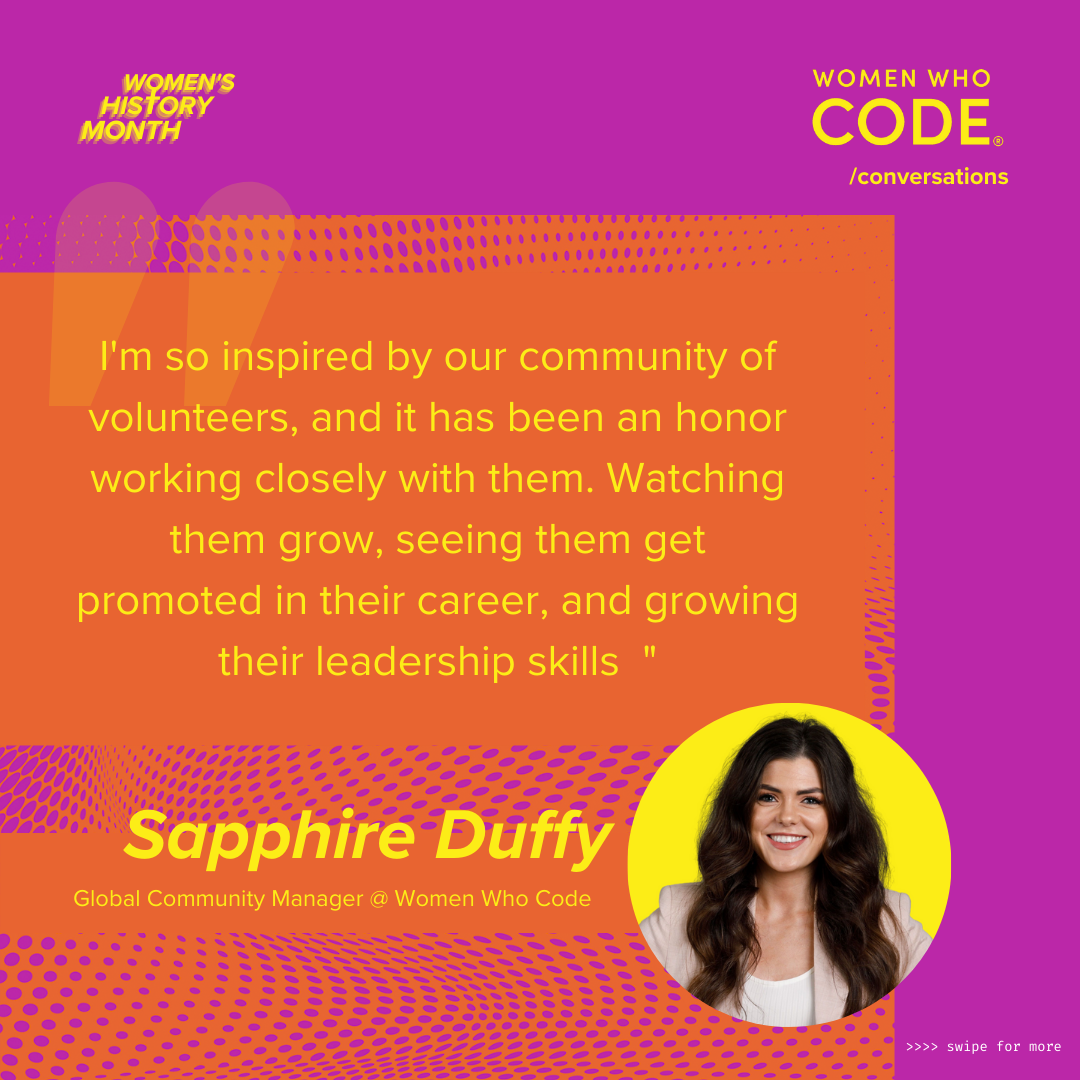
WWCode Podcast #36 – Women’s History Month with Women Who Code Leaders


SD: Where were you in your tech journey when you were a fellow at Women Who Code?
MB: I found Women Who Code after completing a coding boot camp. I was looking for other mobile developers in the Chicago area. I aligned with the mission and vision. I saw that they were looking for leadership fellows to lead new online technical track communities, so I applied for the mobile technical track.
SD: What's your overall experience been like leading the mobile track as a fellow?
MB: I had an amazing experience growing the online community from the ground up. Many of the volunteers that started on the mobile track with me are still active members. It's rewarding to witness their career growth. I've seen many of our members get promotions and improve their leadership skills by mentoring others in the mobile community. Many have gone on to receive scholarships, give key notes at other tech conferences, and even become Google Developer Experts.
When you first started in the organization, you were Director of the Belfast Network, could you tell us a little bit more about that time in your career?
SD: I was starting my final year of university studying Business Information Technology at Queens. I wanted to meet more women in tech, so I started attending Women Who Code events. I was approached by Claire Burns, who was a Director of Women Who Code, Belfast, at the time. She asked me if I was interested in becoming a Director of Women Who Code, Belfast. It was an absolute honor. My experience as a director was one of the best experiences I've had. When I joined, there were five of us on the team. We grew to a team of twelve. I loved the experience.
Can you explain more about what you do?
MB: I do a lot of behind-the-scenes work for our digital and major events. I also work closely with our engineering team on new product development. Our digital events are free, joining our community is free, and we try to make all of our content as accessible as possible.

I also work on our major events. We host two Connect conferences per year. We're currently busy planning for our upcoming Connect Conference, Connect Recharge which is happening on May 26th. We're still accepting applications, so please if you're reading and you'd like to give a talk at one of our conferences, the applications are open until April 25th. You can go to womenwhocode.com/connect-cfp to submit your talk.
Could you tell us a little bit more about what you do on the team?
SD: I work closely with our global community of volunteers, which is our network directors, our leads, and evangelists. We have 70 networks in 20 countries. Networks are cities and each network has directors leading them. We have over 260 directors and over 250 leads and evangelists. We have a lot of volunteers. I have direct contact with our network directors. I'm developing and optimizing community management processes and programs while building relationships and celebrating the successes of our volunteers. I'm inspired by our community of volunteers. It's been an honor working with them and watching them grow. If anyone is interested in volunteering, you can head over to womenwhocode.com/collaboration to apply to become a volunteer.
I also organize digital events for our volunteers. I host regular check-in sessions with them. We have Casual Leader Conversations, which is just a casual opportunity for our directors to get to know each other and share tips and advice with each other. I also manage operations such as on-boarding and off-boarding new directors, updating network assets, and support needs. As a fellow you lead and grow a technical track, develop programs, build content, and mentor volunteer leaders. This experience helped me so much professionally.
You actually organize Connect twice a year. And we have Connect Recharge coming up. What's the most rewarding part of Connect to you?
MB: Giving my first talk at the Front End summit in Berlin was incredible. I felt very pushed out of my comfort zone. That's one of the best parts of our conferences, being inspired by others that are speaking and taking the stage. You feel empowered to do the same. You're in a safe space. I've always felt very supported and have been given the resources to improve my public speaking. The most rewarding part of Connect conferences is the diverse representation of speakers. We are very intentional about the speakers that we do invite to our conferences.
I've been working on leading and improving our call for proposals process by onboarding volunteers in our community to be a part of our CFP review committee. It gives me a chance to get to know our volunteers, and for them to make an impact in our conferences as well. They get a say in the programming of the conference. Since 2020, we've had various team members contribute to these resources and you can find them at womenwhocode.com/cfp-resources.
Another highlight of these conferences is seeing the community come together.
You've also spoken at Connect and also led technical workshops and panels. What is your experience like? What is your favorite, most rewarding part of Connect?
SD: I absolutely loved my experience at Connect as a speaker. My first experience was leading a workshop. I remember feeling nervous before the talk but I would do it again in a heartbeat. Online conferences, like Connect, are amazing and it is more accessible for everyone now. We get to meet people from all over the world. People can join us when it suits them and all of the content is recorded for people to watch later. I love the digital experience we offer at Women Who Code.
Being here before the pandemic and now, where we've had to pivot to virtual for our global community, what was it like initially?

MB: We had to transition from 100% in-person events to 100% digital events. It has been really important for us to make the content as accessible to our community as possible by uploading it to YouTube. When I first started uploading our events to YouTube, we only had a little over 1,000 subscribers. Our channel has grown significantly, in two years, to 14.7 thousand subscribers. We also had to move our conferences to virtual as well by using the platform hop-in.
Can you talk about how this transition impacted being a fellow? At the time you were leading our data science track, which is entirely online. We didn't have any more in-person opportunities to meet our volunteers. How did that transition affect your community?
SD: I started the position remotely. We were supposed to fly to Atlanta to be onboarded by the global team. Instead, it was online. Working remotely at the time was challenging because everyone was getting used to it. Becoming a fellow was special because people needed us and we became a connecting force for everyone.
MB: We are still very active with hosting events. We're always creating new content and making it accessible for our community. There are so many opportunities to get involved. You can be involved as a speaker, as a volunteer planning events, or by attending our major events such as the Connect conferences. In May we'll be opening up the new leadership fellow applications, so if you want to lead an online global community, that will be your opportunity. As the world is changing, we are consistently trying to survey our community, figure out their needs, figure out what types of events that they want to attend, and what kind of information that they need to learn that will help make them successful in their career.
SD: We're looking forward to more women joining and taking up on each of the amazing programs and support that we offer, continuing to grow worldwide and connecting with each other.
MB: Our members are making history inside and outside of Women Who Code.